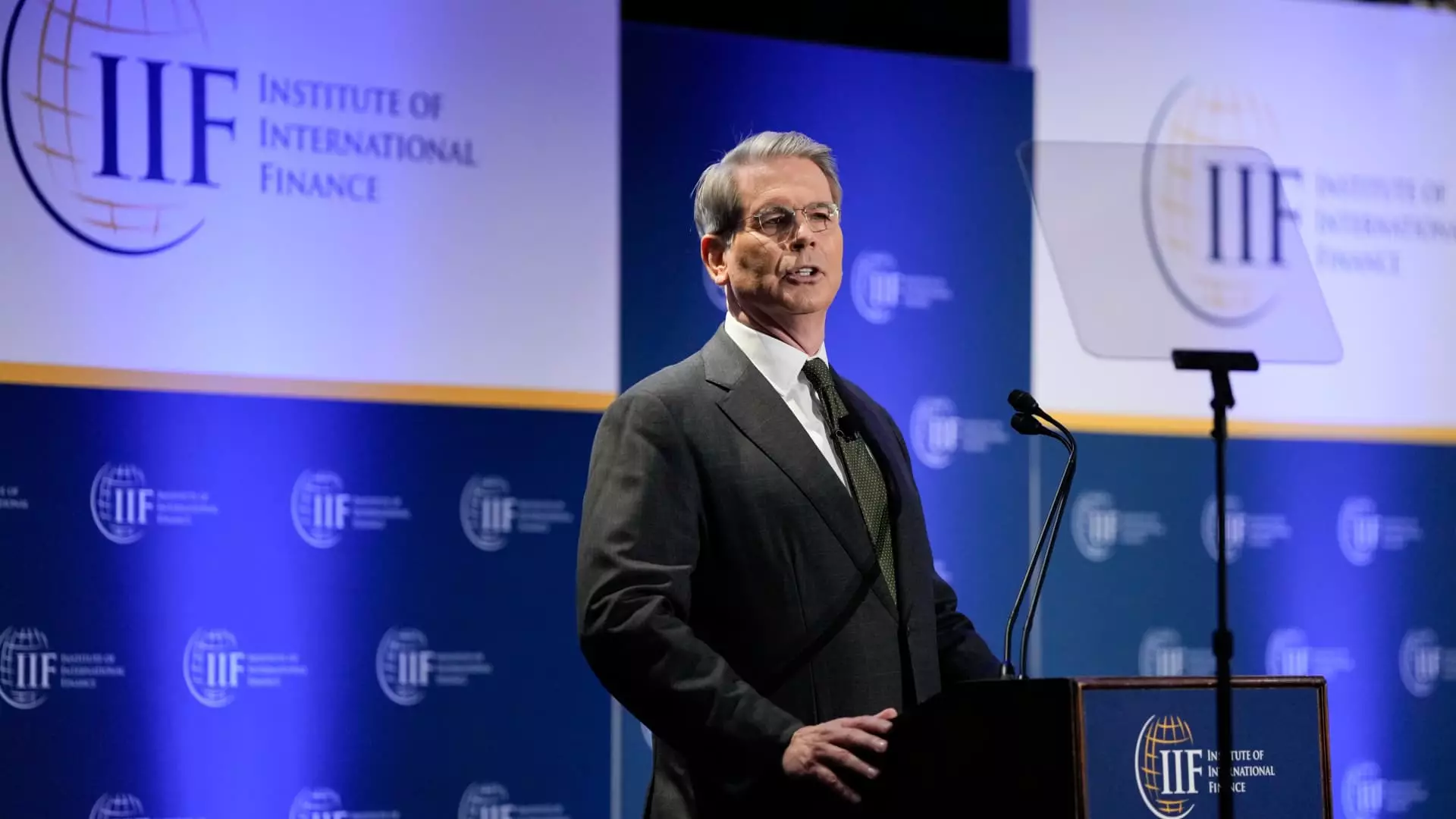The global economy stands at a critical juncture, and the words of Treasury Secretary Scott Bessent regarding the trade relationship between the United States and China capture an essence of urgency. Bessent put forth a compelling notion that a “big deal” on trade is not only possible but necessary. He suggested that if both nations are genuinely committed to rebalancing their economic ties, there is a unique opportunity to do so cooperatively. This isn’t merely a diplomatic statement; it’s a clarion call for meaningful action. Between the lines of his speech lies a deeper narrative of an evolving global landscape fraught with challenges that require immediate redress.
The Tariff Dilemma: A Double-Edged Sword
The stark reality is that President Trump’s administration has implemented exorbitant tariffs—some reaching an astonishing 145%—as a means to address trade imbalances with China. However, the proposal to potentially reduce these tariffs to between 50 and 65% remains steep and may still perpetuate a cycle of economic strain. While the intention behind tariffs is often painted as protective, the reality is far more complex. These punitive measures do not merely serve to pressure China; they risk inflicting self-harm upon American consumers and manufacturers alike. The paradox of aiming for economic protectionism while compromising domestic stability evidences a flawed approach that must be reevaluated.
Reforming International Financial Institutions
Bessent’s emphasis on reforming the World Bank and the International Monetary Fund (IMF) is especially pertinent. He highlights a troubling reality: these institutions, initially designed to stabilize the global economy, have deviated from their foundational purposes. By continuing to lend to countries like China—countries that have surpassed the developmental stage traditionally warranting such assistance—the economic playing field becomes skewed. It is indeed time for a hard reckoning where the IMF and World Bank must set stringent timelines for countries that have long met graduation criteria. Treating a behemoth economy like China as a “developing nation” is not just artificial; it reinforces outdated paradigms that obstinately ignore the complexities of global markets.
A Call to Action: Economic Responsibility
Bessent argues that the erosion of America’s manufacturing sector is not solely due to domestic policies but significantly influenced by international maneuvers designed to undermine our economic security. The idea that our supply chains are threatened in this way should ignite a sense of urgency among policymakers. With these dynamics at play, American resilience can no longer be taken for granted. Addressing these imbalances is not a matter of political expediency but a profound necessity, as economic disparity can morph into political unrest. For a forward-looking America, the call is clear: we must take responsibility for our economic position, both at home and abroad.
The Dilemma of Economic Dependence
As Bessent mentioned, the reliance on institutions like the World Bank can hinder a country’s transition toward self-sustaining economic growth. A state continually dependent on external aid lacks the motivation to cultivate robust private sector development. This fosters a culture of reliance that ultimately undermines the very economies that these institutions aim to help. The time has come to encourage nations to transition away from dependency and embrace job-rich, sustainable growth strategies. This is not just a matter of economic policy; it is a question of dignity and self-determination for nations striving to elevate their economic standing.
The Vision for a Balanced Future
In synthesizing these various threads, it becomes apparent that there exists an opportunity for a transformative vision of international trade and finance. The aspirations outlined by Bessent reflect the undercurrents of frustration with the status quo and signal a desire for a more equitable economic future. Moving forward, the US must not only rethink its own policies but also engage in constructive dialogues rooted in mutual respect and understanding. If we are to envision a global economy that promotes fairness, it requires bold reforms and the courage to challenge longstanding traditions that no longer serve us. The economic landscape may be fraught with challenges, but the path to a balanced future is illuminated by the willingness to embrace change.


Leave a Reply